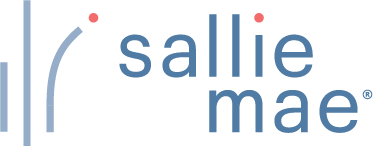Private student loans can be used to pay college costs, ideally after you have borrowed the maximum you qualify for in both subsidized and unsubsidized federal student loans.
Private student loans come from banks, credit unions or online lenders. We’ve done the research to find the top private student loans for parents and students to consider. Remember, the low end of the interest rate ranges will only be available to those with good or excellent credit scores. Students who are fresh out of high school tend to have a thin credit file, which works against them in qualifying for a private student loan. So lenders encourage parents or another trusted adult with good to great credit to cosign. Their credit histories will be used to determine the interest rate. Cosigning generally means they are on the hook for the loan if the student doesn’t pay.
In this Post
- Ascent’s Private Student Loans
- Sallie Mae’s Student Loans
- CommonBond’s Private Student Loans
- Wells Fargo’s Private Student Loans
- Choosing a Private Student Loan
How to Choose a Private Student Loan
Some private student loan lenders don’t have caps on the amount of money you can borrow from them, but your school may. As you evaluate what loan suits you best, find out how the loan will be disbursed and what costs it will cover.
Don’t wait for your school to decide how much of a loan you can handle. Do the due diligence yourself. Experts recommend borrowing no more than what you’ll most likely earn in your first job out of college. This can protect you from having unmanageable monthly payments after you leave school.
When picking a private student loan, make sure to review like the interest rate, its terms for co-signers, any discounts and your repayment options.
Private Student Loan FAQs
How are interest rates determined for private student loans?
Private student loans usually offer variable and fixed interest rates that are based on the borrower’s creditworthiness. If you have good or excellent credit, then you’ll be eligible for a lower interest rate. But if you have poor or fair credit, prepare for an interest rate on the higher end of the range.
Variable rates rise and fall according to the index they follow. For example, the lender may use the London Interbank Offered Rate (LIBOR) or the prime rate as its benchmark.
What is a “co-signer release”?
Most traditional college students don’t have a long credit history, so they turn to another adult to co-sign their loan. A co-signer is an individual who is willing to use their good or excellent credit history to help someone get a loan that he or she does not qualify for alone. If the borrower can’t make payments on the loan, the lender seeks payment from the co-signer. If the borrower defaults on the loan, it negatively affects the co-signer’s credit.
Some private loans offer to release the co-signer from the loan after the borrower makes a certain number of payments or meets other requirements. That can protect the co-signer from a credit hit as a result of the primary borrower’s payment history.
Do private student loans allow deferment?
Federal student loans allow you to delay your loan payments while you are attending school. Some private student loans offer this, too, but interest will still accrue on these loans. (With federal student loans, interest does not accrue during deferment if you have subsidized federal direct loans, which are available to undergraduates with financial need.)
There are lenders that offer other types of deferment. For example, some allow you to delay your payments due to a financial hardship, like unemployment, or during military deployment. Be mindful of the amount of interest you’ll owe and any fees the lender may charge for this. You’ll want to review your deferment options before choosing a loan.
With private student loans, what is forbearance?
Like deferment, forbearance lets you suspend payments for a certain period of time. Private lenders may use “forbearance” and “deferment” interchangeably. Forbearance on federal loans always causes interest to accrue, which differentiates it from deferment.
Regardless of whether the suspended payments are referred to as deferment or forbearance, on a private loan, the unpaid interest gets added to your principal, causing your monthly payments to increase once repayment begins again.
Which fees should I look out for when choosing a private student loan?
Just like you should read the fine print on a credit card, you should understand the fees you might incur on private student loans. Some lenders will add your fees on to the principal of the loan. When you apply for a private student loan, seek out answers to the following questions:
- Is there a loan application fee?
- Is there a loan origination fee?
- Which types of fees could I incur for making a late payment?
- How do I pay the fees?
Methodology
Forbes analyzed available private student loan offers to find top picks for a range of categories. Characteristics taken into consideration while evaluating private student loans included fees, interest rates, discounts, perks, terms and repayment options.


